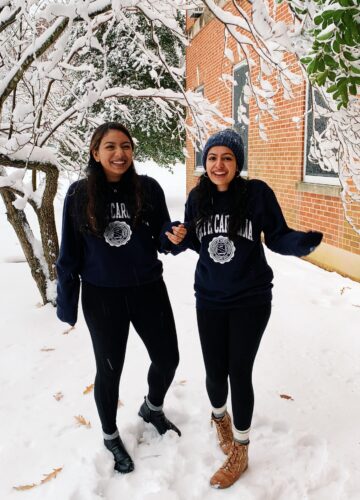Q: When you were a child, what was your response to this question: “What do you want to be when you grow up?”
A: A doctor. It was clear to me that there was no better way to utilize my talents and skills than to help others overcome ill health. Without the burden of sickness or injury, people are free to pursue whatever they want: painting the next Mona Lisa or travelling to the Great Wall of China.
Q: Share the pivotal moment in your life that helped you choose your field of study.
A: The summer before I started undergrad, I needed something to do other than spending 12 hours a day at the beach — which, of course, is a perfectly valid way to pass time. A friend was pursuing doctoral research in the lab of Gyory Buzsaki at New York University and offered to let me shadow her a couple days a week. After observing her and learning about the world of neural circuits, microsurgery, and EEG-analysis, I was fascinated. This work seemed like magic instead of science: inserting an electrical probe into an animal model brain to determine memory state or inducing gene expression by shining a blue light on the model. I knew then that neuroscience was what I wanted to pursue.

Narayanan and her roommate take a break from finals out in the snow during their first semester at UNC in 2018.
Q: Tell us about a time you encountered a tricky problem. How did you handle it and what did you learn from it?
A: When I first joined the Kato Lab, one of my main jobs was, and still is, mounting 40-micrometer-thick brain slices onto glass slides. These tear easily, float off the slides, and generally don’t end up in the proper orientation. Seeing my frustration, Dr. Kato — in his quiet, no-nonsense way — said that failure and learning from your mistakes was the only constant in the whole field of sciences. Eventually, my brain and hands developed the skill and finesse they needed to mount the slides cleanly and efficiently. Those weeks of trying and failing taught me that almost everything can be accomplished through persistence and hard work.
Q: Describe your research in 5 words.
A: Thalamus and cortex play telephone.
Q: What are your passions outside of research?
A: I am pursuing a B.A. in Music, Instrumental Performance along with my neuroscience degree. I’ve been a musician in one capacity or another since I was 3 years old, and it was not something I was ready to give up, even for my love of neuroscience. I think that encouraging scientists to pursue their other interests breaks down the binary often seen between the arts and sciences. My life as a musician only enhances my work as a scientist, studying the neural circuits of sound processing.


